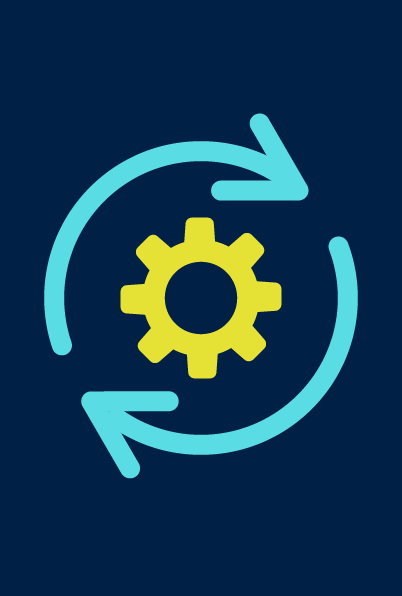Good Institutional Research Is More About Managing People than Managing Data
 Performance management and
professional development are frequently discussed interchangeably, yet one is a reflection on the past while the other is forward looking. When I think of performance management, I think about examining the achievements of the year.
It tends to be task-oriented with a focus on accomplishments—highlighting what you did and how you did it over the course of the past year. By contrast, professional development is about goal setting. It is about holding yourself accountable
to your growth plan—ensuring that your toolbox a year from now is supplemented with more skills than you currently possess. Both are important, but you need to approach them in different ways. This article is meant to help guide you through
both processes.
Performance management and
professional development are frequently discussed interchangeably, yet one is a reflection on the past while the other is forward looking. When I think of performance management, I think about examining the achievements of the year.
It tends to be task-oriented with a focus on accomplishments—highlighting what you did and how you did it over the course of the past year. By contrast, professional development is about goal setting. It is about holding yourself accountable
to your growth plan—ensuring that your toolbox a year from now is supplemented with more skills than you currently possess. Both are important, but you need to approach them in different ways. This article is meant to help guide you through
both processes.
PERFORMANCE MANAGEMENT
Good performance management is continuous. Don’t think about it as an annual process associated with a 2% merit increase. Rather, performance management should be about constant feedback. Whether you’re giving or receiving feedback, the frequency of your interactions is what helps to avoid surprises. Nothing is more demoralizing than thinking you’re doing a great job only to find out in your annual review that you have areas for improvement. Instead, performance management should be regular and often. When praise is warranted, make sure the accomplishments are recognized and documented. When constructive criticism is necessary, the conversation needs to happen quickly and with enough depth and specificity to ensure all parties are aware of what the issue entails and how it will be rectified. Indeed, whether positive or negative feedback, documenting the what and the how is critical to good performance management.
The first step in evaluating the what is having a good list of projects and accomplishments throughout the year. I recommend utilizing project management software to generate reports that showcase accomplishments, campus partners, and timelines. In our office, we just use a shared Excel template to track our projects and their statuses. At the end of the year, this project inventory is helpful for everyone in the office to reflect on their annual To Do list. Furthermore, it is a useful tool for sharing with senior leadership during the budget process to make sure they are aware of the amount and scope of projects in institutional research.
The next step involves reviewing the quality of the work. Did you have to make any revisions to your IPEDS submission after catching an error? Was USNWR submitted on-time or did you have to request an extension? Was the provost happy with your newest enrollment dashboard? The what is all about getting projects done accurately and in a timely manner.
In my opinion, the how is the more important of the two performance management evaluations. How we work with our partners across campus is critical to the long-term success of our office. Relationships and how we work with colleagues and subject matter experts is the fundamental foundation of institutional research. This is the reason we don’t use a ticket system in our office—our work goes beyond fulfilling isolated requests. It is important to educate, teach others about what data is available, coach them to ask better research questions, and ensure our deliverables match their expectations. The only way you can accomplish these things is through personal connections. A successful career in institutional research is built on trust, which is a very people-oriented approach. They need to trust you. They need to trust your analysis. They need to trust your expertise. They need to trust your advice. When I think of performance management, I am far more interested in how you accomplish your tasks and how you work with others than I am in what you achieved. Did you communicate effectively? Are you looking for process improvements? During your down time, do you take initiative to learn something new or conduct independent research? At the end of the day, I am most proud of our office and how we collaborate. Yes, I love the work we do and the quality of our projects, but my true passion is watching our team work together and grow.
PROFESSIONAL DEVELOPMENT
Goal setting is my favorite part of my job. The reason I love our line of work is getting to mentor and coach others. Professional development is all about growth. Every analyst in our office creates a pathway outlining their journey in institutional research. Want to learn advanced statistics? Write it down! Interested in joining the next Iron Viz competition in Tableau? Sign up! Are you interested in a career in management? Take our course in Crucial Conversations. Professional development is about building up your skills and interests as you progress in your IR journey.
The very first conversation I have with new analysts joining our team goes something like this.
First, I set an expectation.
Five years from now, I do not expect you to be in this role. You will either be promoted, or you will be poached by another department /institution into a new position where you can continue your career path.
Next, I want them to know they are supported.
It is my job as a leader in this department to make sure you have the tools and skills available to help you get ready for that next job. Whether you’re in this office for three years, five years, or ten years, I want your time in this office to be something that adds value to your career. My role is to make sure you have opportunities available to grow and to support you in these plans.
Finally, I want them to think about what it will take to get there.
So what does that path look like to you? How can you connect with our campus community? With our professional networks? Through service, training, or skill development?
This last step is key. Professional development is an individual journey. Managers need to be supportive, but it is up to the individual to decide where and how to take those next steps.
For some of us, our growth happened within our institution as we worked with Admissions or the Registrar to become experts in the data. For others, we found our niche by presenting at AIR Forum or attending regional IR meetings. Whether through a free webinar, pre-conference workshop, or Tableau certification, there are plenty of ways to encourage professional development.
TAKEAWAYS
We all play a part in the “continuous improvement” of our institution. We owe it to ourselves to do the same for our profession and for ourselves.
 Justin Shepherd is Associate Vice Provost of Institutional Research & Decision Support at Emory University. Dr. Shepherd manages a program of institutional research, analysis, and reporting designed to support university- decision-making. Email: justin.shepherd@emory.edu | LinkedIn: www.linkedin.com/in/justincshepherdphd
Justin Shepherd is Associate Vice Provost of Institutional Research & Decision Support at Emory University. Dr. Shepherd manages a program of institutional research, analysis, and reporting designed to support university- decision-making. Email: justin.shepherd@emory.edu | LinkedIn: www.linkedin.com/in/justincshepherdphd
